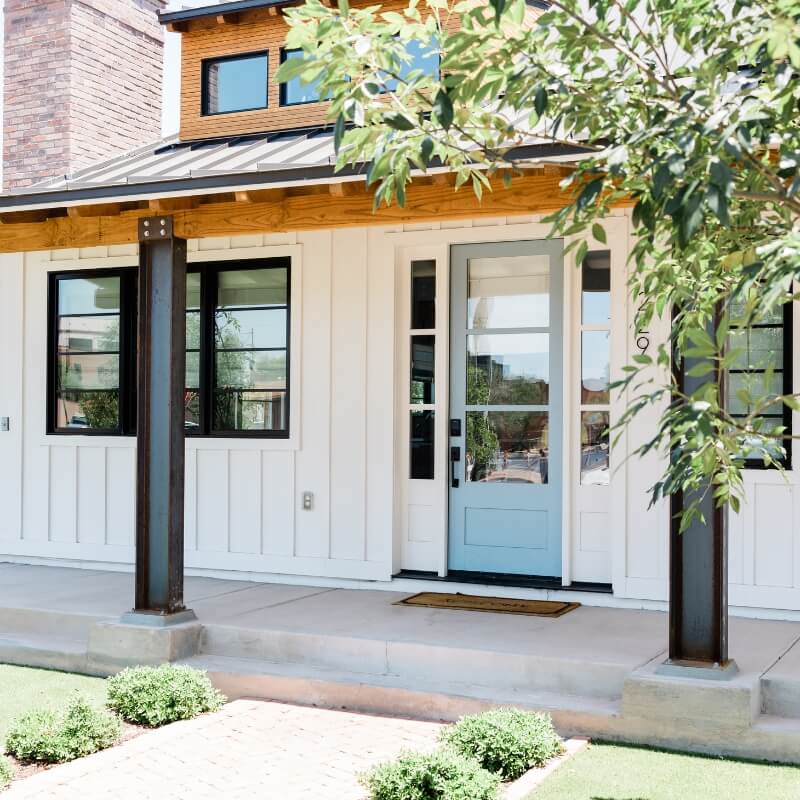Owning a rental property comes with risk—and one of the most important ways to protect your investment is by maintaining proper insurance coverage. At DFW Rent Houses, we require all owners to carry landlord insurance and strongly recommend several additional forms of protection to reduce liability and financial exposure.
This page outlines our insurance requirements for owners, along with expert tips to help ensure you’re covered in the event of accidents, disasters, or tenant-related issues at your Arlington, TX rental property.
Minimum Insurance Requirements
To ensure every property we manage is protected, DFW Rent Houses requires all owners to carry a valid landlord insurance policy, also known as a dwelling policy or DP-3 policy. This policy must remain active throughout our management agreement.
Your landlord policy must include:
- Property coverage for the physical structure (dwelling)
- Liability coverage with a minimum of $300,000 per occurrence
- Loss of rental income coverage in case the property becomes uninhabitable
- DFW Rent Houses listed as additional insured or interested party
Listing us as an additional insured ensures we are notified of policy changes, cancellations, or renewals—so your property never goes uncovered without your knowledge or ours.
Why Landlord Insurance Is Different
Many first-time landlords assume that a standard homeowner’s policy will cover their rental property. However, homeowner’s insurance is designed for owner-occupied residences and typically excludes coverage when the property is used as a rental.
A proper landlord policy offers:
- Protection for tenant-caused damages
- Liability coverage for tenant injuries or claims
- Coverage for detached structures, appliances, and built-in systems
- Reimbursement for lost rental income during covered repairs
If your current policy is not a landlord policy, we recommend contacting your insurance provider immediately to make the switch.
Recommended Additional Coverage Options
While a DP-3 policy is the minimum requirement, additional protections can provide even greater peace of mind. Consider adding the following:
Umbrella Policy
An umbrella liability policy extends your coverage beyond the limits of your landlord insurance. This is especially valuable if you own multiple properties or have high net worth. We recommend a minimum umbrella policy of $1 million.
Equipment Breakdown Coverage
Many landlord policies exclude damage to HVAC units, water heaters, or appliances due to mechanical failure. Equipment breakdown coverage can help offset costly repair or replacement expenses for these systems.
Flood Insurance
Standard landlord policies do not cover flood damage. If your property is located in a designated flood zone—or even near one—it’s smart to consider flood insurance through the National Flood Insurance Program (NFIP) or a private carrier.
Ordinance or Law Coverage
If your property is older, ordinance and law coverage helps cover the cost of bringing the property up to current code after a covered loss. This can be critical during major repairs.
Renter’s Insurance for Tenants
In addition to protecting your own interests, we strongly recommend requiring tenants to carry renter’s insurance with a minimum of $100,000 in liability coverage. This benefits both the tenant and you as the property owner.
Renter’s insurance typically covers:
- The tenant’s personal belongings
- Liability for injuries to guests or damage to property
- Additional living expenses if the property becomes uninhabitable
If a tenant causes a fire or flood that damages your property or adjacent units, their renter’s insurance may help cover the costs—potentially reducing the need to file a claim on your own policy.
We provide tenants with information about renter’s insurance during the application process and verify coverage before move-in.
Common Insurance Mistakes to Avoid
Protecting your property with insurance is essential—but it’s equally important to avoid gaps or oversights that can lead to unexpected losses.
Mistakes we frequently see:
- Keeping a homeowner’s policy instead of switching to a landlord policy
- Failing to update the insurance address after converting a property to a rental
- Allowing a policy to lapse during tenant turnover
- Not listing DFW Rent Houses as an additional insured
- Relying solely on security deposits to cover damage or liability
Our team can help you spot these issues and connect you with insurance providers that understand the unique needs of rental property owners.
Documentation and Compliance
Once you secure the required coverage, please send a copy of your declarations page to our team. This ensures we have your coverage on file and that your property is in compliance with our management agreement.
You can upload your policy documents through the owner portal or email them directly to our office. We’ll track expiration dates and notify you in advance when your policy is due for renewal.
Need Help Finding Coverage?
If you’re unsure whether your current policy meets our standards—or if you’re looking for more robust protection—we’re happy to refer you to trusted local insurance agents who specialize in landlord insurance.
We also work closely with these providers to ensure fast claims handling and easy coordination in the event of property damage or emergency maintenance.
Protect Your Investment with the Right Insurance
At DFW Rent Houses, our job is to protect your rental property at every level—from tenant screening to maintenance, to financial reporting. Insurance coverage is a key part of that protection, and we take it seriously.
By maintaining proper coverage and understanding your options, you can safeguard your property, your income, and your long-term success as a real estate investor in Arlington, TX.
If you have questions about your policy or would like a referral to a qualified insurance partner, contact our team or send a message through your owner portal. We’re here to help you protect what matters most.



